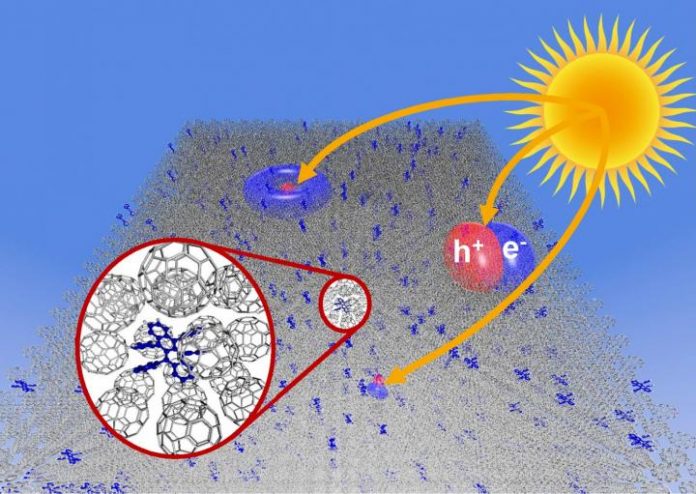Scientists from Germany’s Technische Universität Dresden and Hasselt University, in Belgium, have discovered molecular vibrations are responsible for reducing the maximum achievable photovoltage of organic solar cells.
The researchers investigated what caused the formation of bands of excitons – combinations of electron and hole in an excited semiconductor – in molecular blends of organic PV cells as the bands are responsible for performance limitations. Organic solar cells are ‘excitonic’: light absorption in them generates a bound electron-hole pair – the exciton – which then separates across a heterointerface to generate charge carriers.
The researchers said a phenomena called zero point vibration, which they described as a quantum physics effect which characterizes motion at absolute zero, may be responsible for cell voltage losses.
Phonons
The Germano-Dutch group referred to the relationship between electrons and phonons in their findings, with the phonon a unit of energy generated by atoms oscillating within a crystal structure which contributes to electron energy.
With reference to zero point vibration, the group stated: “This fundamental quantum effect is responsible for lowering the performance of organic solar cells, thus rendering vibrations and their electron-phonon coupling an important subject for future research.”
The group added: “The quantum effect of zero-point vibrations, mediated by electron-phonon interaction, causes a substantial exciton bandwidth and reduces the open-circuit voltage. This effect is surprisingly strong at room temperature and can substantially limit the organic solar cell’s efficiency.”
The researchers said new strategies to minimize vibration-induced voltage losses should be investigated further. Compared to crystalline silicon devices, organic solar cells have lower conversion efficiencies because of the low levels of their open-circuit voltage.
The findings of the Technische Universität Dresden-Hasselt University study were presented in the paper Molecular vibrations reduce the maximum achievable photovoltage in organic solar cells, published in Nature Communications.






